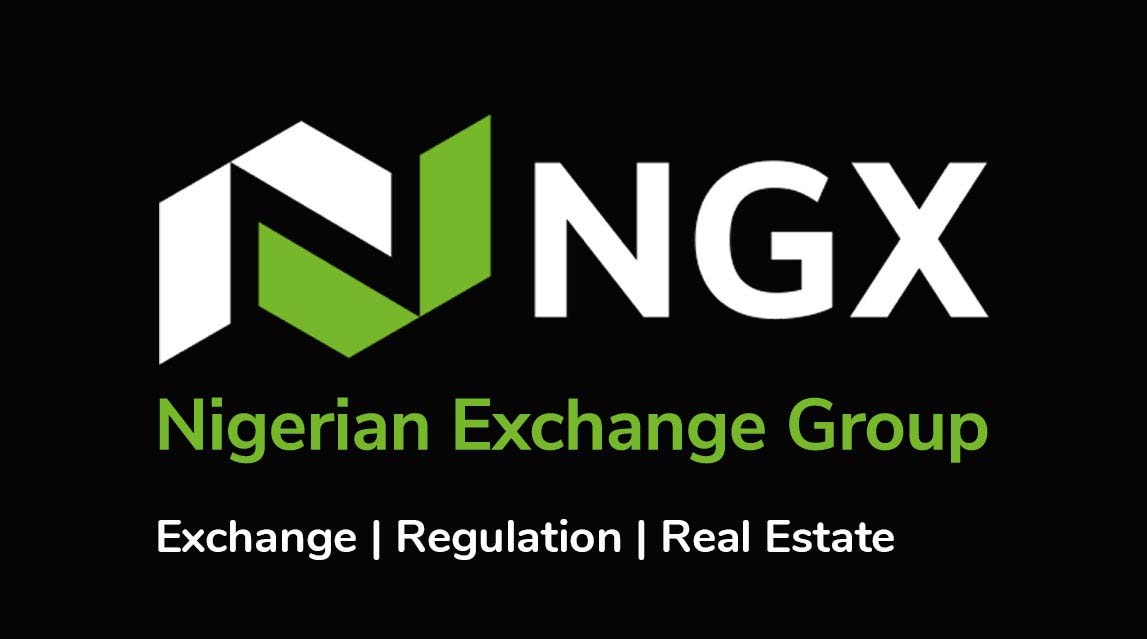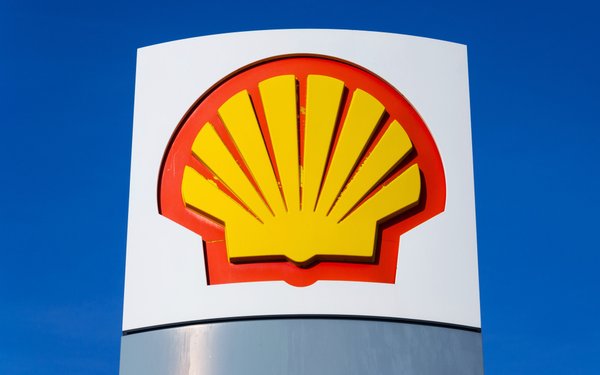Business
Nasdaq’s plan for cutting prices infuriates rivals

NEW YORK – Nasdaq OMX Group is pushing to cut the fees it charges big customers that trade on several of its exchanges, a move that is arousing the attention of regulators and triggering accusations from rivals that the company is seeking to stifle competition.
In late October, Nasdaq told U.S. regulators that it wanted to offer cheaper trading for customers of one of its options exchanges, if their total volume of trading with all three of Nasdaq’s options exchanges was substantial.
Regulators balked. The Securities and Exchange Commission put the proposal on hold in November, and asked rivals and customers for comment.
If approved, the Nasdaq plan could have far-reaching effects on competition, pricing and complexity in options and stock markets. Rivals claim it would end a level playing field by favoring larger exchange companies that run a number of different marketplaces over smaller players.
Competition is fierce in the U.S. financial markets, with 12 U.S. options exchanges and 13 U.S. stock exchanges, as well as dozens of alternative trading venues.
The latest standoff stems from an obscure feature of U.S. law that forces each individual exchange to offer the same pricing plans to all of its customers.
Because of the rule an exchange company cannot on the same market offer rebates favoring customers who place many orders while also giving discounts to customers who place a few very large orders, for example. Instead, the company has to set up different exchanges to meet the needs of different customers. Each exchange is supposed to compete with the others, even if they are owned by the same corporate parent.
Under Nasdaq’s proposal, the walls between those units would be effectively broken down. That’s what alarms smaller rivals and startups, who say that tearing down those barriers will allow Nasdaq and other established operators to offer cheaper pricing, stifling competition and entrenching the biggest exchange operators.
Nasdaq said in a lengthy rebuttal made public on Monday that some of its rivals were just looking to avoid competition. The SEC “should treat with substantial skepticism any argument by an exchange that a competitor should not be permitted to reduce its prices,” it said in a letter posted on the SEC’s website.
There is no rule explicitly banning the practice of aggregating volume across exchanges to provide discounts. There are, however, laws stating that each exchange’s fees cannot be unfairly discriminatory or hinder competition.
Nasdaq declined comment when contacted by Reuters.
“It’s a dramatic departure from previous precedent,” said Jeromee Johnson, who runs the BATS Global Markets’ options exchange.
Still, the idea is not necessarily bad as investors could ultimately end up with better prices, Johnson added. BATS runs two separate U.S. stock exchanges, and is merging with Direct Edge, which also runs two U.S. stock exchanges.
The proposed pricing plan could be used “benevolently,” to lower prices for some firms, or it could be used “malevolently,” allowing exchanges to use the bundled rebates to gain “mini-monopolies” on certain segments of the market, said Bill O’Brien, chief executive at Direct Edge. The proposal needs to be scrutinized, he added.
SEC REVIEW
Nasdaq is looking to lower trading costs for customers of its Nasdaq OMX Phlx options exchange that also do business on its two other U.S. options markets, Nasdaq Options Market and Nasdaq OMX BX Options. To qualify for the rebate, the customer need not do business with all three exchanges, but its total volume of trading must meet a certain threshold.
In 2009, Nasdaq tried to lower transaction fees for key customers of its main U.S. stock exchange that also did a certain amount of business on Phlx. The SEC repealed that proposal, saying it was not clear if it met the statutory rules.
In scrutinizing the latest proposal, the regulator will consider whether it is anticompetitive for individual exchanges to act together to encourage trading activity, two people familiar with the SEC’s thinking said.
The regulator will also look at the potential impact of Nasdaq’s proposal on the principle of equitable allocation of fees, they said. That means, for example, if two Phlx members trade the same amount on the exchange, but one also trades on an affiliate exchange and therefore qualifies for an extra rebate on Phlx, is it fair to the Phlx member who did not qualify for the rebate?
Nasdaq said the proposal would lead to lower trading costs, and is therefore pro-competitive – an argument that one of its biggest customers, hedge fund and market maker Citadel, supports. Further, any exchange that felt at a disadvantage by having just one platform could simply open other exchanges, and operate similar pricing formats, Nasdaq added.
Deutsche Boerse’s International Securities Exchange (ISE), which recently launched its second U.S. options exchange, says it isn’t as easy as that, warning that the process of getting its new platform off the ground took years and overall costs ran into the multiple millions of dollars.
“Can exchanges that supposedly compete against each other cooperate to establish joint fees?” ISE wrote in a letter to the SEC. “We believe that the answer is a resounding ‘No.'”
MIAX Options Exchange, which opened just over a year ago, said it could not compete against a structure that leverages trading volume and fees over three competing exchanges.
The proposal “would severely hinder competition amongst options exchanges and damage the existing market structure that is built on competition and innovation,” MIAX told the SEC.
The SEC has until May 23 to make a decision, although that date could be extended.
Nasdaq is looking to ensure the SEC hears all of its arguments. Prominent Washington DC lawyer Eugene Scalia filed a legal motion on Friday with the SEC on Nasdaq’s behalf, asking that parties who submitted comments on the proposal be required to appear before the SEC to present oral arguments supporting their positions, according to a document obtained by Reuters. Scalia, the son of Supreme Court Justice Antonin Scalia, was not immediately available for comment Tuesday afternoon.
The exchange operator said in the document that it wants to be sure it has the chance to rebut any arguments made by other participants.
– REUTERS
Business
Affordable Petrol: Ardova, Heyden Enter Bulk Purchase Pact With Dangote Refinery

Motivated by the relief provided by President Bola Ahmed Tinubu’s crude-for-naira swap initiative, two prominent players in Nigeria’s downstream oil and gas sector — Ardova Plc and Heyden Petroleum — have gone into a bulk purchase agreement with the Dangote Petroleum Refinery.
Biztellers reports that this strategic move is designed to ensure a steady supply of petroleum products at affordable prices, with a view to further stabilising Nigeria’s fuel market and enhancing energy security.
This strategy seeks to build on the example set by MRS Oil Nigeria Plc, which had entered into a similar agreement with Dangote Refinery.
ALSO READ: One Dies Following Explosion Of Tesla Cybertruck At Trump’s Hotel In Las Vegas
As a result, MRS Oil had lowered its petrol prices to N935 per litre across all its stations nationwide, addressing the long-standing issue of price disparities between states. On the sideline, MRS Oil’s stock surged to a new 52-week high last Friday, as investors became increasingly optimistic about the company’s future earnings prospects.
It was gathered that the bulk purchase agreement with Dangote Petroleum Refinery would enable both Ardova and Heyden to secure a reliable and consistent supply of petroleum products from the world’s largest single-train refinery, ensuring a stable supply of fuel at competitive prices, benefiting consumers across the country.
The arrangement ensures that Ardova and Heyden will have access to a full range of refined products, thereby securing their operations with a reliable supply chain.
A statement from Ardova Plc underscored the importance of this agreement in fostering a more competitive environment within Nigeria’s downstream oil and gas sector.
Ardova has been a key off-taker from the Dangote Refinery since its inception, but this new framework is expected to formalise and strengthen the partnership between the two companies, creating long-term benefits for both parties.
“This framework will see Ardova Plc offtake a full slate of petroleum products from the refinery. While Ardova Plc has been a significant off-taker from the refinery since its inception, this new framework will institutionalise a more robust relationship between the two companies to further enhance the emerging competitive landscape in the downstream oil and gas industry in the country,” noted the statement.
The partnership with Dangote Refinery is poised to have a transformative impact on Nigeria’s oil and gas market. By ensuring a stable and affordable supply of fuel products in the over 1,000 retail outlets of the two companies, the agreement will help to alleviate the recurring issue of fuel scarcity that has long plagued Nigeria.
The Dangote Refinery, which began production in 2024, has already played a pivotal role in addressing these challenges. Its large-scale operations have helped alleviate the supply pressures that often lead to price hikes and fuel shortages.
During the festive season, Nigerians enjoyed a relatively smooth period, with stable fuel availability and no significant price increases at the pump. Unlike previous years, when the country faced fuel shortages and arbitrary price hikes during peak periods, the Dangote Refinery has significantly contributed to stabilising the market and maintaining price consistency.
Business
NGX Bucks 2015 To 2019 Trend, Thrives In Roaring 20s

. . . ASI Closes 2024 At +37.65%
The Nigerian Exchange Limited (NGX) has marked a remarkable turnaround, breaking away from the poor performance of the 2015–2019 period to thrive in the 2020s.
Biztellers reports that the poor run came on the heels of the oil price crash in 2015 and the ensuing recession in 2016, the 2020s have ushered in a period of unprecedented growth for Nigeria’s stock market.
ALSO READ: SERAP Urges Tinubu To Direct CCB To Publish President’s, VP’s, Others Assets
Since 2020, the NGX All-Share Index (ASI) has delivered a stellar return of 283.45%, climbing from 26,842.07 points at the end of 2019 to 102,926.40 points as of December 2024. Standout years include 2020, 2023, and 2024, as investors sought higher real returns from equities amid negative yields in the fixed-income markets. The index closed 2024 with an impressive annual growth of 37.65%.
The depreciation of the naira, driven by macroeconomic reforms by the Central Bank of Nigeria (CBN) and the Federal Government, has significantly boosted the performance of the stock market. Foreign capital inflow has steadily increased, rising from a low of 4% in mid-2023 to an average of 16% by November 2024.
Additionally, high-profile listings have energized trading activities on the exchange, providing investors with a broader range of blue-chip stocks. Notable entries include Geregu Power Plc, Transcorp Power Plc, Aradel Holdings, and BUA Foods.
These listings have propelled the market capitalization from N12.79 trillion at the end of 2019 to N62.76 trillion as of December 2024, representing a meteoric increase of N49.97 trillion.
At the Closing Gong Ceremony marking the end of 2024 trading activities, NGX’s Chief Executive Officer, Jude Chiemeka, represented by the Head of Trading and Products, Abimbola Babalola, commended key stakeholders, including the stockbroking community represented by the Chartered Institute of Stockbrokers (CIS) and the Association of Securities Dealing Houses of Nigeria (ASHON).
“The year 2024 witnessed significant activity in the secondary market, a testament to the efforts of our trading license holders. Complementary macroeconomic fundamentals were instrumental, and we appreciate the impactful policymaking by the CBN and the Federal Ministry of Finance. We also commend the Securities and Exchange Commission for its effective oversight, especially during the smooth banking recapitalization process,” he said.
CIS President and Chairman of Council, Oluropo Dada, and ASHON Chairman, Sam Onukwue, represented by the 2nd Vice Chairman, Ify Rita Ejezie, emphasized the pivotal role of stockbrokers in driving capital market growth.
They reiterated their commitment to advocating for policies that enhance market development.
Despite the impressive growth, challenges remain. According to Proshare’s 2025 market outlook, Nigeria’s capital market continues to grapple with high transaction costs, information asymmetry, monetary tightening, low trading volumes, and wide bid-ask spreads, all of which stifle liquidity.
However, the report underscores the potential of leveraging the equity market through the listing of national assets, such as NNPC, to unlock liquidity and stimulate domestic and foreign investment.
GMD/CEO of Nigerian Exchange Group, Temi Popoola, reflected on the market’s resilience and growth trajectory, thus, “Nigeria’s capital market has proven itself as a hub of resilience and innovation, consistently offering valuable opportunities for investors. The strong performance of our blue-chip companies over the past decade has been a key driver of returns, even amid challenging economic cycles. Inflationary pressures have made equities an attractive hedge, and strategic new listings have significantly boosted market activity.”
He further highlighted the transformative impact of policy reforms, “Macroeconomic shifts, particularly in the oil and gas sectors and currency devaluation, have been transformative. These changes, coupled with the liberalization of exchange rates, have enhanced operational efficiency and contributed to the robust performance of listed companies. As we approach 2025, we remain optimistic that continued reforms and a stable macroeconomic environment will sustain growth, boost liquidity, enhance investor confidence, and deliver long-term value for all market participants.”
Business
CSR: 170 Graduates Benefit From Shell, Partners’ Internship

A total of 170 young graduates have benefitted from the NCDMB/PETAN/SPDC JV Graduate Internship programme, in which they were attached to indigenous technical oilfield service companies in the upstream and downstream sectors for hands-on experience.
Biztellers reports that some 133 of the interns have been employed by the companies indicating the success of the programme as a talent pipeline for the oil and gas industry in Nigeria.
The latest batch of 49 intake graduated at a ceremony in Port Harcourt early this month after completing their internship which began in 2022.
ALSO READ: Adeleke Presents Staff Of Office To New Owan Obokun, Oba Haastrup
Speaking at the ceremony, Chairman of the Petroleum Technology Association of Nigeria (PETAN), Wole Ogunsanya, commended the Shell Petroleum Development Company of Nigeria Ltd (SPDC) Joint Venture for the support for the programme which it is helping to build local manpower for a critical sector of the economy.
SPDC and PETAN had jointly set up the programme in 2014 whereby young graduates are attached to the over 100 member companies of the organisation with SPDC paying them monthly stipends. From 2022 when the Nigerian Content Development and Monitoring Board (NCDMB) joined the collaboration, the programme has run for two years with 100 intakes.
The NCDMB/PETAN/SPDC JV Graduate Internship programme has been lauded as a key human capital development initiative which is central to the promotion of Nigerian content in the oil and gas industry.
SPDC’s General Manager Nigerian Content, ‘Lanre Olawuyi, said, “The internship is more than a learning opportunity. It provides fresh graduates with technical expertise, equipping them with the practical skills needed to excel in their careers. It aligns with SPDC’s broader educational initiatives, contributing significantly to the actualisation of the UNESCO ‘Education for All’ agenda and the Sustainable Development Goals in Nigeria, particularly in the Niger Delta.
“We owe the success of the programme to the untiring support of our JV partners, the Nigerian National Petroleum Company Limited (NNPC,) TotalEnergies and Nigerian Agip Oil Company Limited for which we’re grateful.”












